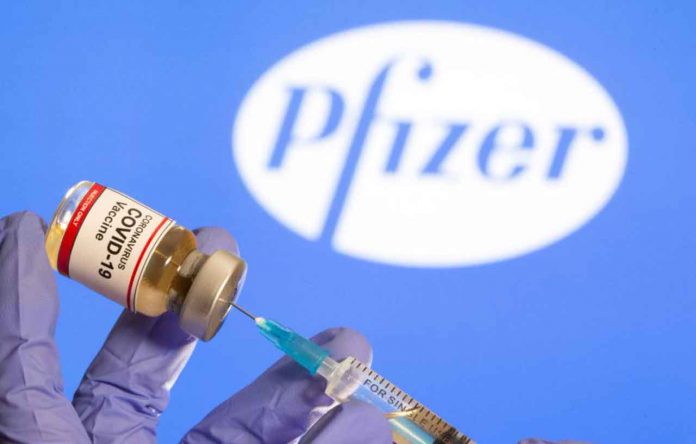
OTTAWA – There are complications for individuals who have suffered with severe allergic reactions to some of the components in the Pfizer–BioNTech COVID-19 vaccine.
Health Canada has been monitoring the situation and has issued recommendations.
Summary
- Product: Pfizer-BioNTech COVID-19 vaccine
- Issue: Two individuals in the U.K. reported severe allergic reactions to Pfizer–BioNTech’s COVID-19 vaccine on December 8, 2020. As vaccine roll-out begins in Canada, Canadians may be wondering about the risks of allergic reactions and if they should receive this vaccine if they have allergies to foods or other medications.
- What to do: People with allergies to any of the ingredients in the Pfizer-BioNTech COVID–19 vaccine should not receive it. Speak with your health professional about any serious allergies or other health conditions you may have before you receive this vaccine.
Issue
Health Canada has followed up on the two reports of anaphylactoid reactions to Pfizer–BioNTech’s COVID-19 vaccine in the U.K. These reactions occurred on December 8, 2020.
Both individuals in the U.K. had a history of severe allergic reactions and carried adrenaline auto–injectors. They both were treated and have recovered.
As vaccine roll-out begins in Canada, Canadians may be wondering about the risks of allergic reactions. In Canada, all vaccines carry a warning about the risk of serious allergic reactions, including anaphylaxis, and immunization clinics are equipped to manage these rare events.
People with allergies to any of the ingredients of the vaccine are currently cautioned against receiving it. This caution is already noted in the Canadian Product Monograph (prescribing information) for the Pfizer-BioNTech COVID-19 vaccine. The vaccine’s ingredients are as follows:
- Medicinal ingredient:
- mRNA
- Non-medicinal ingredients:
- ALC-0315 = ((4-hydroxybutyl)azanediyl)bis(hexane-6,1-diyl)bis(2-hexyldecanoate
- ALC-0159 = 2-[(polyethylene glycol)-2000]-N,N-ditetradecylacetamide
- 1,2-Distearoyl-sn-glycero-3-phosphocholine
- cholesterol
- dibasic sodium phosphate dihydrate
- monobasic potassium phosphate
- potassium chloride
- sodium chloride
- sucrose water for injection
Health Canada has reviewed the available evidence and has concluded that the current Product Monograph and available public health guidance are appropriate, and is not recommending any changes to the product’s use at this time.
Health Canada continues to work with the U.K. Medicines and Healthcare products Regulatory Agency and with the manufacturer to monitor the situation. Health Canada will take action if any new safety issues are confirmed.
What consumers should do
- If you know you have allergies to any of the ingredients in the Pfizer-BioNTech COVID-19 vaccine, you should not receive it.
- If you have experienced a serious allergic reaction to another vaccine, drug or food, you should talk to your health professional before you receive the vaccine.
What health professionals should do
- Follow guidance and recommendations related to identifying and managing serious allergic reactions following immunization. This includes ensuring that appropriate medical treatment and supervision are in place at all vaccination sites, as indicated in the Product Monograph.
What Health Canada is doing
Health Canada will continue to monitor this situation closely.
As vaccines for COVID-19 become available, they will all be closely monitored through Canada’s vaccine safety monitoring system, which involves health professionals, the provinces and territories, the Public Health Agency of Canada, Health Canada and vaccine manufacturers.
Under the terms and conditions of the authorization of this vaccine, Pfizer-BioNTech is required to continue providing information to Health Canada on the safety, efficacy and quality of the vaccine.
Health Canada will also continue to collaborate with international regulators to share information about these vaccines as they are rolled out around the world.
If any new safety issues are confirmed, Health Canada will take appropriate action, which could include communicating any new risks to Canadians and healthcare providers or changing the recommended use of the product.
Background
Health Canada has conducted a rigorous scientific review of the available scientific evidence to assess the safety, efficacy and quality of the Pfizer-BioNTech COVID-19 vaccine. No major safety concerns have been identified. Based on the current information, Health Canada has assessed that this vaccine’s benefits outweigh its risks.
The side effects observed during clinical trials of Pfizer-BioNTech’s COVID-19 vaccine are similar to those experienced with other vaccines, including pain at the site of injection, body chills, feeling tired and feeling feverish. These side effects will resolve on their own and do not pose a risk to health.
How to report side effects to vaccines in Canada:
For the general public: If you experience a side effect following immunization, please report it to your healthcare professional. If you need information about how to manage a side effect, please contact your healthcare professional.






